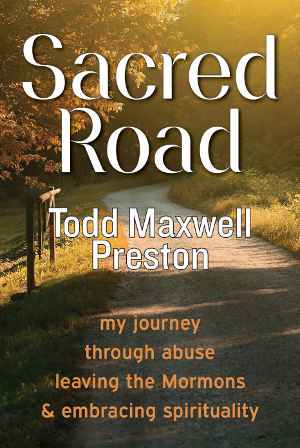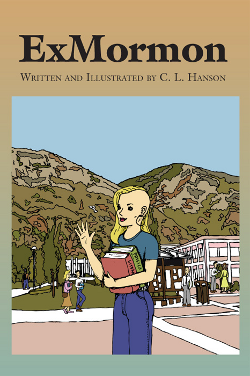
|
|
|
Sacred Road is a deeply personal journey. The tale expressed is often tense, and yet the story is still surrounded in heartwarming and uplifting moments. Todd Preston is a master of crafting his all too real tale into something entertaining, suspenseful, and incredibly moving. The notion of spirituality versus religion is touched upon as one of the main themes, and opens doors for readers to take new things into perspective and really delve into their own thoughts of their personal senses of spirituality. Sacred Road can be heavy in this way, and so is best suited for adults or young adults who may be interested in this type of material.  Todd Preston's Sacred Road shows the audience the darker side of a Mormon life, coupled with an honest perspective not often seen in such literature. Even beyond that, Sacred Road is a story about moving on and finding who we really are, and what we believe in. It is a story about survival and what it takes in order to break free and learn from a terrible situation. The author eloquently shows the audience that there can be a life after suffering, and that the road to happiness is different for everyone. Sacred Road is gripping non-fiction at its finest as the reader learns all about Todd Preston, his father, and so many more people who affected his life in both negative and positive ways. Intense in its honesty, this story is meant to be read and given time to process on an emotional level with the audience. Because Sacred Road is an autobiography, there is the opportunity to feel as though Todd Preston is speaking directly and frankly with the reader. It is not in a diary format, and almost reads like a conversation. Preston does not ramble though. He sticks to matter-of-fact moments and hopeful anecdotes all within the truth of his complicated and incredibly interesting tale. This is what makes Sacred Road so very worth the purchase in order to add this book to any reader's library. - GoodbooksToday.com Reviews This story is a familiar one in ex-Mormon circles. Mormonism is especially attractive to people and families suffering from abuse. People see these beautiful, smiling, perfect Mormon families and think: “If we were Mormon, we’d be happy like that too.” In such cases, Mormonism isn’t the root cause of the abuse, but can often exacerbate the problem instead of helping. Once the family joins the church, Mormon culture encourages them to cover up the abuse, and only show a beautiful, smiling, perfect exterior. Mormon teachings also often give increased authority to the abuser, teaching the rest of the family be obedient and submissive. Todd’s story is exceptional, though, in terms of his perspective. I’ve read a lot of memoirs where the author describes having been profoundly hurt, having learned unhealthy relationship models, and passing the abuse along. Generally such stories have an edge of defensiveness, but not Todd’s story. He has taken great pains to understand where he was at and what he and others were feeling that prompted various (often poor) choices. Thus he takes responsibility for his choices and expresses regret at the harm caused by others, but without blaming and shaming. In terms of understanding the cycle of abuse — in order to break it — the story is excellent and exceptional. I’ve never read anything quite like it. And it’s inspiring to see the main character grow into a person who can view his own story in this way. Read more |























